
Village Renaming: China’s Move to Erase Uyghur Culture
A disturbing new report reveals that the Chinese government is systematically erasing Uyghur identity by changing the names of villages in Xinjiang’s autonomous region. Human Rights Watch, in collaboration with the Norwegian Uyghur organization “Uyghur Hjelp,” has documented that around 630 villages with significant cultural or religious importance to the Uyghurs have had their names altered to reflect Chinese Communist Party ideologies.
The report, released on Wednesday, details how elements of Uyghur culture and religion, including references to the traditional Uyghur string instrument “dutar” and the shrine “mazar,” are being removed from village names. This deliberate renaming campaign is seen as part of Beijing’s broader strategy to obliterate Uyghur culture and religious expressions.
“This is a part of the serious abuses that are ongoing for the Uyghurs in Xinjiang,” Maya Wang, Interim China Director at Human Rights Watch, told VOA. The Chinese government often replaces Uyghur village names with Mandarin phrases like “happiness,” “unity,” and “harmony,” which convey the government’s desired sentiments for the Uyghur people to adopt.
The renaming campaign, which peaked between 2017 and 2019, coincides with the mass internment of Uyghurs across Xinjiang. During this period, Uyghur expressions of identity and history have been systematically suppressed or distorted. Wang emphasizes that Beijing’s goal is to coerce Uyghurs into conforming to strict state-imposed norms, with severe penalties for non-compliance.
Most of the villages undergoing name changes are in predominantly Uyghur regions such as Aksu, Kashgar, and Hotan. Despite the Chinese embassy in Washington D.C. claiming that Uyghur culture is “effectively protected and promoted,” the evidence suggests a concerted effort to erase Uyghur identity.
In 2022, the U.N. high commissioner for human rights reported that China’s actions against Uyghurs could amount to crimes against humanity. The U.N. estimates that at least one million Uyghurs and other Muslim minorities have been interned in re-education camps since 2017, although China denies these allegations, claiming all detainees have “graduated.”
Impact on the Uyghur Community
The renaming campaign has had a profound and devastating impact on the Uyghur community. Interviews with 11 Uyghurs reveal difficulties in locating villages and accessing government services due to the new names. Abduweli Ayup, an exiled Uyghur linguist and co-author of the report, noted that many Uyghurs outside Xinjiang can no longer recognize their hometowns.
This name-changing campaign is part of a broader strategy that includes mass detention, surveillance, family separations, forced labor, and sexual violence. Activists argue that these measures aim to undermine the essence of Uyghur identity and culture, making them feel inferior to the Han Chinese majority.
Zumretay Arkin of the World Uyghur Congress highlighted additional campaigns aimed at erasing Uyghur culture, such as sinicizing mosques by removing religious symbols and replacing them with tributes to the Chinese Communist Party. In 2017, Human Rights Watch reported that Chinese authorities banned Uyghurs from using names with religious connotations, deeming them as potentially inciting religious fervor.
What Can the International Community Do?
The Chinese government’s efforts to forcibly assimilate Uyghurs have driven many to hide their identity and way of life, placing a significant burden on the diaspora community to preserve Uyghur cultural heritage. Despite international condemnation and targeted sanctions, these measures have proven ineffective in changing Beijing’s treatment of the Uyghur community.
Ayup urges foreign governments to intensify pressure on Beijing during the upcoming UN Human Rights Council session and prioritize the release of the hundreds of thousands of Uyghurs still detained in Xinjiang. The ongoing erasure of Uyghur identity through village renaming is a stark reminder of the extensive cultural and human rights abuses faced by the Uyghur community in China.
- EU Court Freezes $77 Million in Alleged VAT Fraud Scheme Involving Chinese Nationals
- Light Snowfall Expected in High Hills and Mountainous Regions
- SXC Sandbox 2.0: National-Level 48-Hour Hackathon Concludes at St. Xavier’s College
- Controversy Over Yogi Adityanath’s Image at Former King Gyanendra’s Welcome Rally



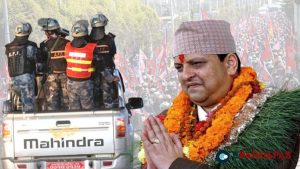
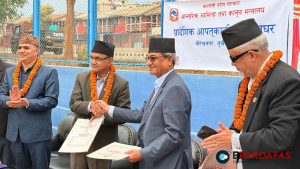





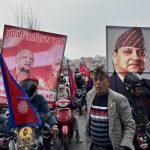
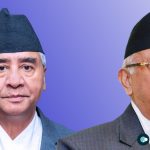
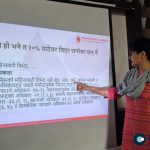
Comments